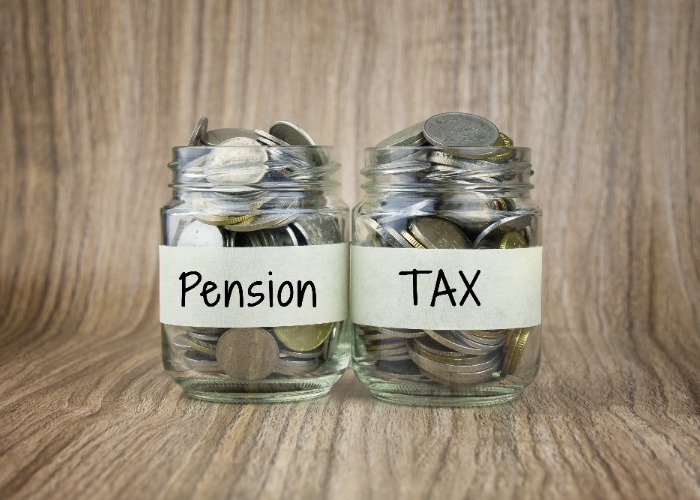Comment: it’s time to dispel the myth that pensions are tax-free

When the latest tax raid kicks in, savers could lose two-thirds of their pension pot to the taxman.
We write a lot about the tax-free benefits of saving into a pension and the tax relief you can receive on your contributions.
However, it’s important to remember that pensions themselves are not tax-free.
In fact, when you retire and start receiving your pension income, you'll find it is taxed at source just like a salary.
With a personal or company pension, the provider pays you your income after tax, which is taken out via your tax code before you receive it.
Just as when you are working, you will have a Personal Allowance – which is currently £12,570.
Any earnings above that threshold are taxed at either the Basic Rate (20%), the Higher Rate (40%) or the Additional Rate (45%) depending on how much pension income you receive.
On top of this, from 2027, you'll face another tax raid on your pension at death that could wipe out up to two-thirds of your remaining funds.
Pensions: the tax-free elements
Of course, there are some elements to saving for a pension that are tax-free.
The contributions you make into your pension pot receive tax relief to encourage you to save for your future retirement.
Basic Rate taxpayers receive 20% tax relief on their pension contributions, Higher Rate taxpayers 40% and Additional Rate payers 45%.
With a Defined Contribution Pension, you also have the right to receive a 25% tax-free lump sum from your pension pot from the age of 55.
However, the remaining 75% is liable for taxation.
Will the State Pension ramp up your tax bill?
The State Pension is also taxable, but how much tax you pay will depend on the total amount of pension income you receive.
The maximum new State Pension is currently around £11,502.40 (£221.20 per week), rising to £11,975 a year in the 2025/26 tax year.
If this is your sole income in retirement, you will not pay any income tax on it as it will come under the threshold of the Personal Allowance.
However, if you earn additional income from a personal or company pension, and this takes you above the Personal Allowance you will pay tax on pension income above this.
Don't forget about the impending Inheritance Tax raid
What’s more, if you inherit a pension, you will also pay tax on it.
This will depend on the type of payment you receive, the kind of pension pot it is and how old the original owner of the pension was when they died.
At present, if you inherit a lump sum from a defined benefit (final salary) or a Defined Contribution pension and the owner was under 75, you won’t pay tax on it unless the value of your lump sum is above the pension pot owner’s lump sum and death benefit allowance.
If the owner was over 75 when they died, you’ll most likely pay income tax on the pension income. You can find out more at the Government’s website here.
Under the Government's new tax rules, unveiled as part of last October's Budget, some retirees could lose up to 67% of their pension to tax when they die.
From 2027, inheritance tax (IHT) will be levied on pensions, which is expected to increase the number of estates liable for IHT to increase by 50% by 2032.
Under the new system, the pensions of someone who dies aged older than 75 could be hit by both Income Tax and IHT at 40%.
According to pension provider Fidelity, in the worst-case scenario, a beneficiary could wind up paying £67 in tax on £100 of inherited pension, meaning that they receive just £33.
Read: 6 ways to minimise the tax grab on pensions
Not perfect, but still the best option
Despite all this, there’s no doubt that saving into a pension is still a worthwhile way to save for our retirement - partly because of these initial tax breaks, which encourage us to put money away, and the lack of viable alternatives.
It also makes sense to put money towards retirement gradually as we earn.
But it’s wrong to think that a pension is some kind of fantasy tax-free haven for our cash – it simply isn’t.
The tax regime for pension savings is just back-loaded if you like.
It may be tax-free on the way in but, like any other income, sadly, it’s certainly not tax-free when we start cashing it in and making use of the money we’ve saved.
Nor will it be tax-free for our beneficiaries when we die.
And it’s worth bearing this in mind in any financial planning we do.
Comments
Be the first to comment
Do you want to comment on this article? You need to be signed in for this feature